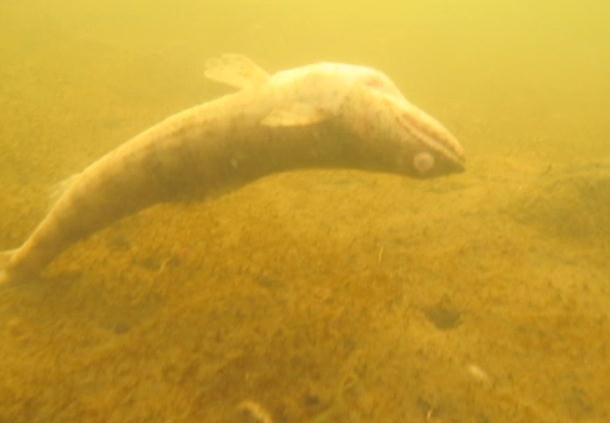Molasses Spill Kills Thousands Of Fish In One Of Hawaii's Largest Environmental Disasters

A sweet, syrupy killer is lurking in the waters of Honolulu Harbor in Hawaii.
According to divers in the area, thousands of fish have been killed after a massive molasses spill suffocated much of the harbors marine life.
“There’s nothing alive there at all,” diver Roger White told KHNL. “Everything is dead. They’re all dead and they’re all just lying across the bottom -- hundreds and hundreds, thousands.” White recorded a seven-minute video for the station, showing the dead fish littering the bottom of the harbor floor.
The spill occurred on Monday when a faulty pipe sent 233 thousand gallons of molasses -- or 1400 tons -- flowing into the harbor. The molasses was part of a 16-hundred ton load that was meant for a California-bound container ship owned by the shipping company Matson Navigation. The number of fish killed as a result of the spill is now presumed to be larger than both the state Health Department and marine biologists expected.
"This is the worst environmental damage to sea life that I have come across, and its fair to say this is a biggie, if not the biggest that we've had to confront in the state of Hawaii," said Gary Gill, deputy director for the Environmental Health Division of the Health Department.
The dead marine life are being removed by crews put in place by the Health Department. And according to White, the spill has affected numerous species of underwater wildlife.
"It was shocking because the entire bottom is covered with dead fish," said White. "Small fish, crabs, mole crabs, eels. Every type of fish that you don't usually see, but now they're dead."
Marine biologists say the effects of the spill could last for an extended period of time. They also warn that the molasses could affect other South Shore reefs as the water circulates out of the harbor into other areas of the coming days, months and likely years. Matson told NBC News that the leak was repaired on Tuesday but they are unable to offer any help when it comes to cleaning up the thick, sticky mess.
"Unlike with an oil spill, it’s a sugar product so it will dissipate on its own," Matson spokesman Jeff Hull told NBC News on Thursday. "There’s not an active cleanup.
The company faces a possible fine of $25,000 a day as crews work to remove the dead marine life from the harbor waters. But the Health Department hasn't yet determined if they will take action against Matson.
© Copyright IBTimes 2024. All rights reserved.
Join the Discussion






















